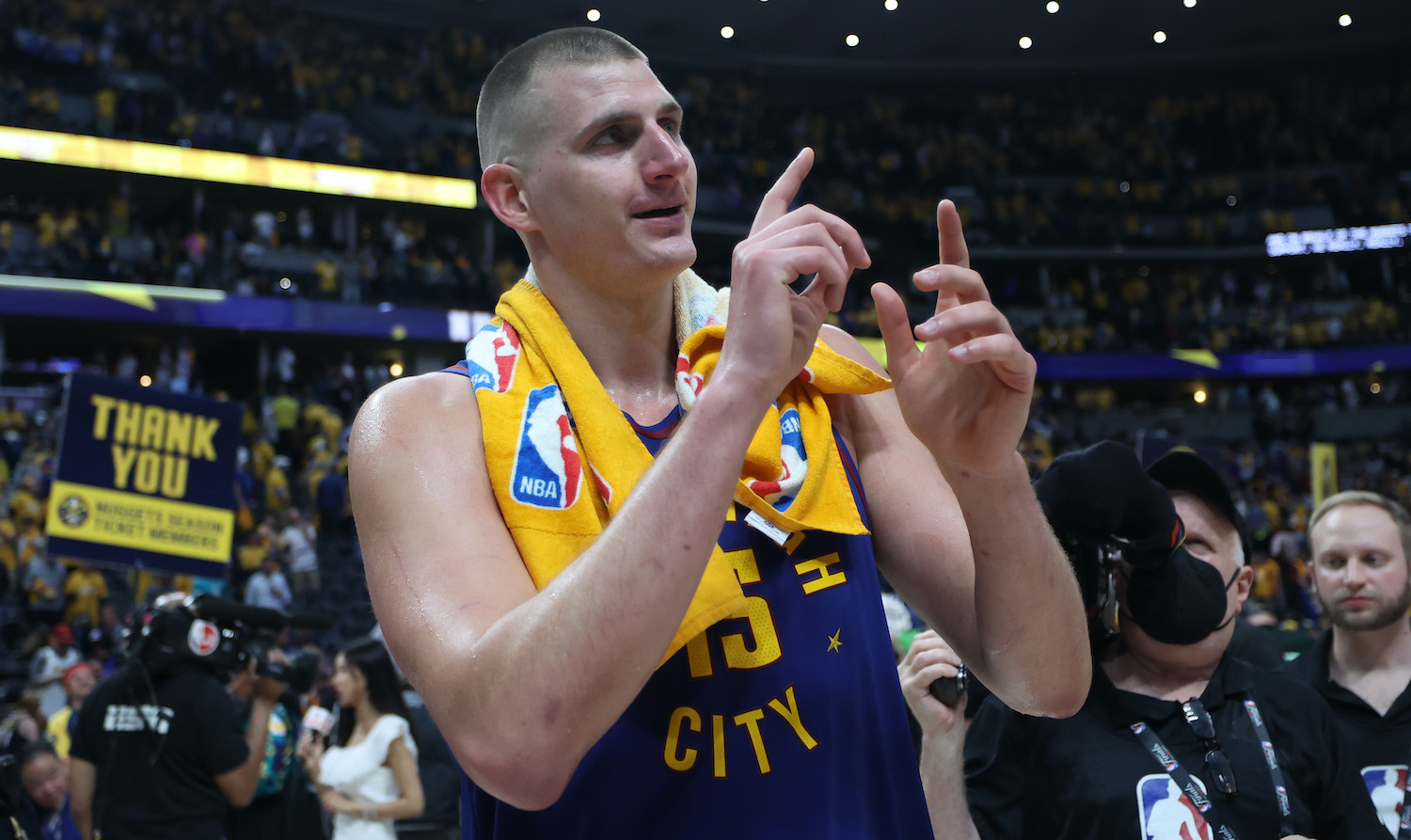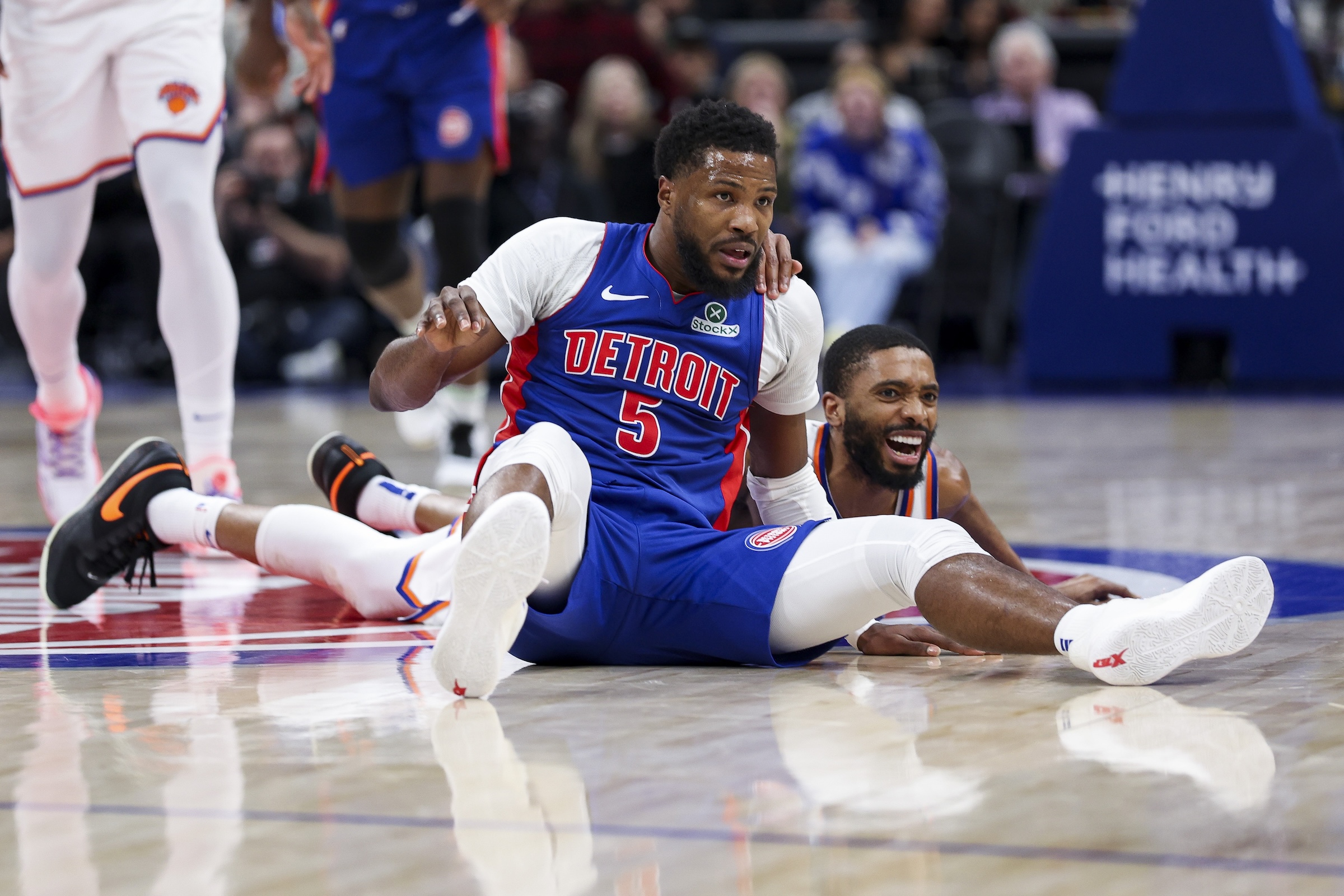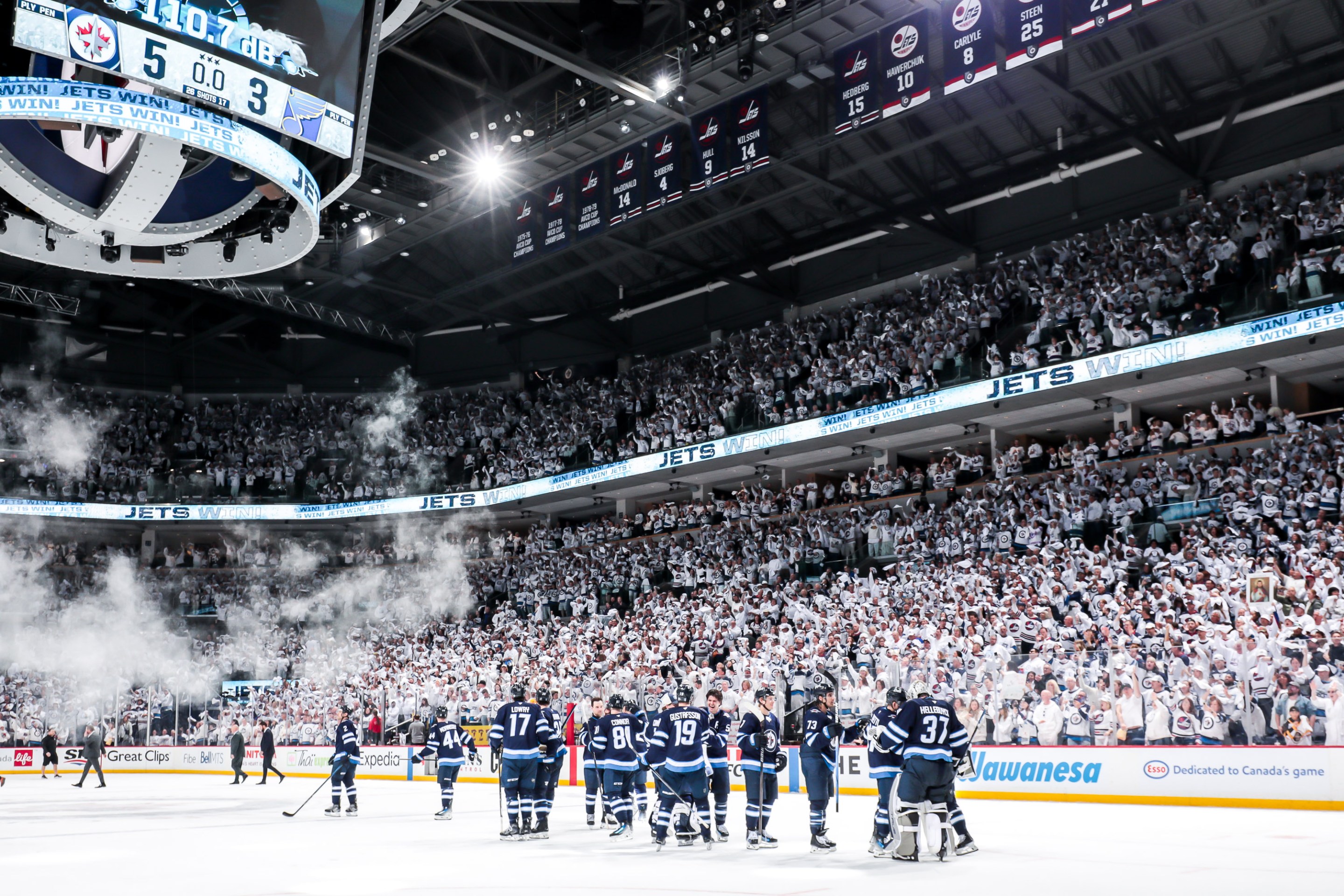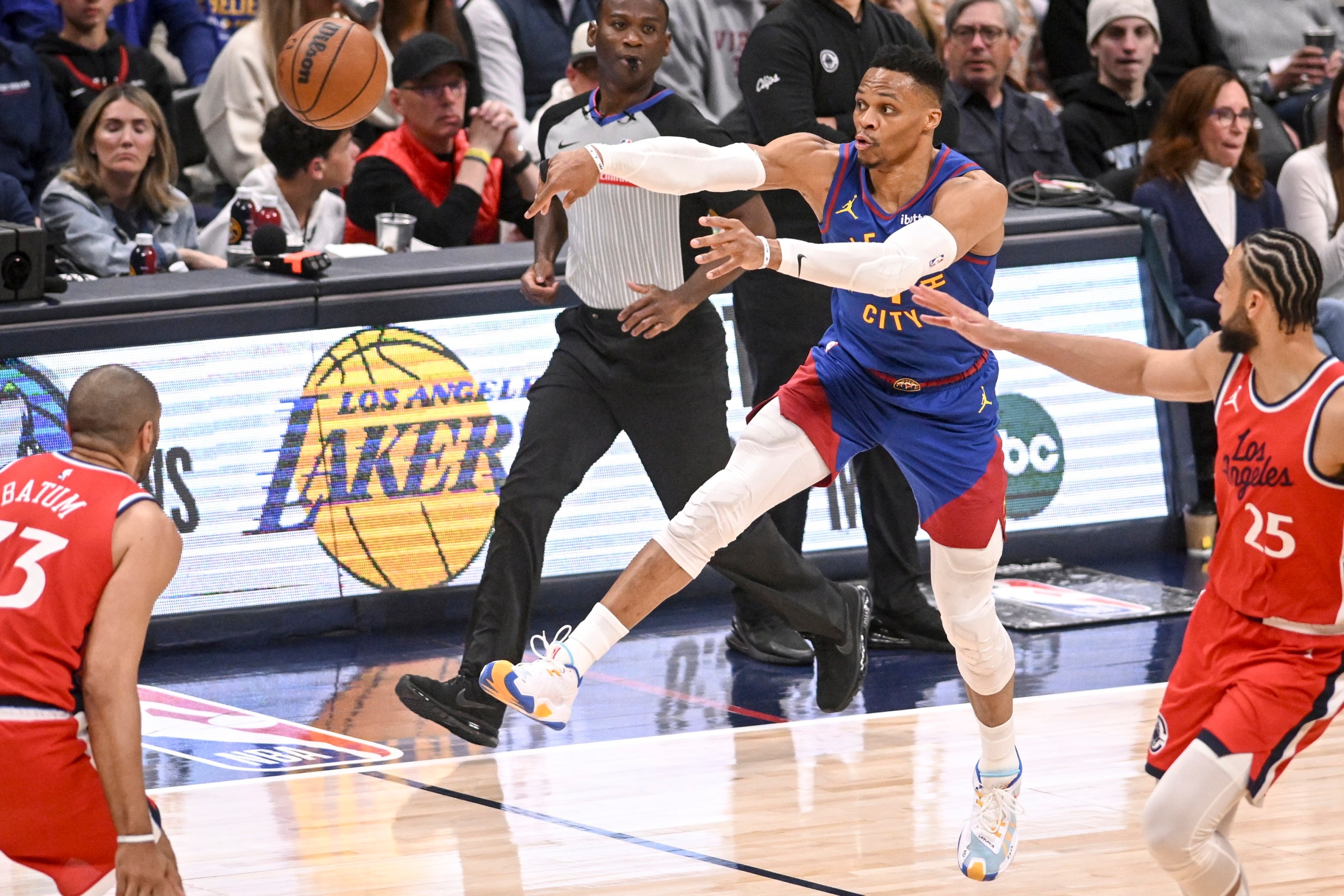Nikola Jokic didn't take the first shot of his Finals debut until there were three seconds left in the first quarter. He finished the first half with three field goal attempts (all makes), and ended the game with 12, the sixth-most of any player in the game. That's a hilariously low-volume night for the best player on a Finals team, but Jokic is one of the few stars in the league for whom scoring passivity is not a detriment to his team's chances. Jokic still exerted complete control over the game, mostly as a passer and a screener, and for the first time in these playoffs, the Miami Heat looked confused and overmatched.
It's rare to see any player dominate a game to the degree Jokic did without getting super aggressive on the offensive end, especially on this stage, against this quality of opponent; in the last 25 years, only certain vintages of LeBron James come to mind, though even at his point-guardiest, he was more aggressive. Jokic wound up with 27-10-14, which is, fittingly, the most assists in a Finals debut, and he racked them up on an off-night for Nuggets shooters. So how did Jokic smother the Heat to death without stressing himself? Of those 14 assists, there are two that tell the story. The first came in the second quarter.
Jokic got the ball near the elbow after Jimmy Butler switched onto him. Butler immediately pressed Jokic hard, preventing him from making inroads off his pivot foot. Jokic has at least 50 pounds on Butler, but Butler is made out of rocks and steel and he's hard to push around, so it took Jokic a second to align himself to try to punish Butler. As Jokic gathered, with three shooters spaced out around him and Aaron Gordon roaming, Haywood Highsmith sprung a flash double on Jokic from the far corner.
The Heat have won three rounds on the road by being the more physical, aggressive team in each of their series. New York was shocked by Miami's physicality, and Boston was staggered by their processing speed. Throwing a surprise double at Jokic is the type of proactive play that Miami gets so much juice from. They force you to outthink them. They dictate terms. Well, usually.
Jokic spun away, right as Gordon set a back screen on Bruce Brown's man, and somehow saw Brown wide open in the corner. At no point during the build-up to the pass did he so much as peek over in Brown's direction. When the double came, he knew someone must be open, though Highsmith was on Gordon, not Brown. Didn't matter. He hit Brown right in the pocket, and he splashed the three.
How does he do it? pic.twitter.com/S7HJ0vIZ8c
— Harrison Wind (@HarrisonWind) June 2, 2023
The Jokic-Murray two-man game was deadly in Game 1, and while Jokic was the game's best player, Murray's Finals debut was also spectacular. He made some ridiculous shots against taller defenders, showed off his post moves against Gabe Vincent and Caleb Martin, and slung 10 assists of his own. As switchable as Bam Adebayo and most of their wing options are, the Heat's base coverage was springing leaks all over when either Jokic or Murray got the slightest advantage, so they had to do something different about the two-man game. Going to a zone was a desperate gambit, as Denver was the second-most efficient team against the zone this season, but the Heat can make it work by using it for spot possessions here and there to get the Nuggets out of rhythm. It only works in short, concentrated doses, because Jokic's passing is uncontainable, but the Heat are maybe the only team in the NBA that can toggle through such complicated defensive coverages without skipping a beat.
And so they tried it, and it worked in short stretches. After Denver seemed to be cruising to a blowout win, a patented burst of energy from the Heat put the game into question early in the fourth quarter. The 21-point lead the Nuggets began the quarter with was only 10 within two-and-a-half minutes after Kyle Lowry nailed back-to-back threes to cap an 11-0 run to open the frame. When the Heat hit shots, they're deadly, especially when the defense is forcing turnovers and Lowry is pushing the pace. After a few sluggish possessions against the zone, where Denver would probe fruitlessly for like 20 seconds, they needed a bucket. So Jokic showed why you can't zone up against him.
The Nuggets began the following possession trying and failing to find a crack in the Heat's armor for 18 seconds. A zone defense only works if you can contain initial dribble penetration, and while the Heat mostly did in this instance, Murray created just enough of an angle to work the ball to Jokic in the soft middle. After Bam Adebayo stepped up and Gabe Vincent dug down, Jokic immediately found Jeff Green cutting baseline for the layup. This play may look simple at full speed, but Jokic had to contend with heavy pressure and find the next pass before the zone snapped back into shape. He helped the Nuggets end what was looking like a very scary run.
Through heavy traffic, Jamal Murray to Nikola Jokic to Jeff Green on the baseline cut for the layup#Nuggets pic.twitter.com/VISl4ifc7c
— Joel Rush (@JoelRushNBA) June 2, 2023
The Heat later closed the gap to single digits, at which point Jokic showed that he could have been backing Adebayo down all the way under the basket on any play he wanted. He scored eight points in the three final non-garbage time minutes of the game, prompting Erik Spoelstra to empty the bench after a turnaround capped the run. Having Jokic cook one-on-one is not Nuggets basketball, though it's good to know that if he's forced to actually carry his team by scoring, Jokic has a lot more to show.






